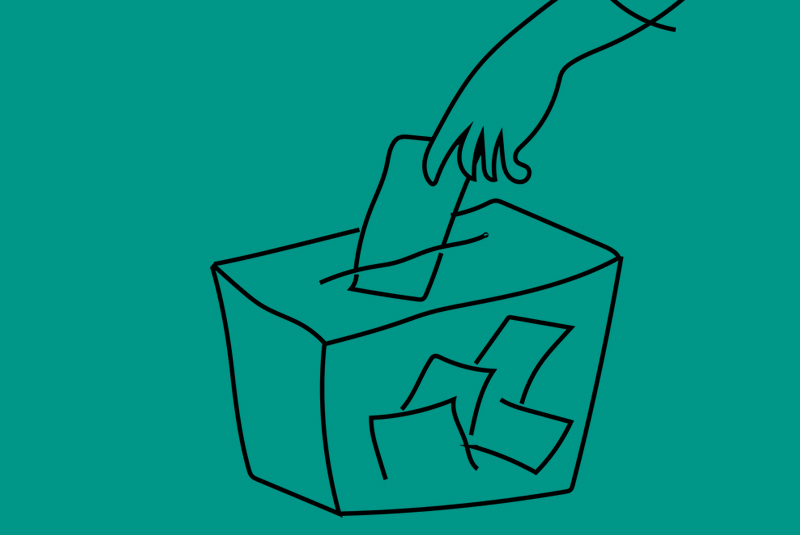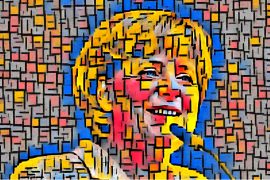The slogan ‘Ab Ki Baar 400 Paar’ will be remembered as one of the biggest jokes in India’s electoral history. Far from winning 400 seats, Modi’s BJP did not even win a majority to form a government on its own.
Having lost a substantial majority, it is now on the back foot, having to depend on other regional parties such as the Telugu Desam Party, Jana Sena, Janata Dal (United), Lok Janshakti Party and other independent candidates to form a government. India is now back to coalition politics.
Despite money power, muscle power, intimidation by state agencies, arrests of opposition leaders, the appointment of supine officials to lead the Election Commission of India, fake news and misinformation via controlled media and phoney exit polls, the election results signal a clear rejection of politics of hate. The people of India have rejected Modi’s majoritarian agenda.
Modi is now a diminished leader. He can no longer wield absolute, unchecked power. That Modi and the BJP did not win a significant majority is a mandate against his divisive brand of politics. For instance, Tamil Nadu and Manipur have voted out the BJP; the DMK won a significant majority in Tamil Nadu, and the hype that the BJP will make significant gains in the state turned out to be hot air. The Indian National Congress won both seats in Manipur; it’s a clear indication that the Meitei of Manipur have rejected Modi’s despicable negligence. In Uttar Pradesh, considered a bellwether state, the BJP lost a significant number of seats, and the Samajwadi Party made substantial gains.
People have expressed their disenchantment with Modi’s hubris. His arrogance has been crushed. However, one must remember that the BJP got more seats than other political parties. It retained its hold in states like Gujarat, Madhya Pradesh, Himachal Pradesh, Chattisgarh and Uttarakhand. Moreover, it gained seats in new territories such as Odisha, Andhra Pradesh, Telangana, and Karnataka. In Kerala, the BJP planted its first Member of Parliament in Thrissur.
Also, the BJP dumped two political parties that stood by the BJP – the BJD in Odisha and YSRCP in Andhra Pradesh – and helped their opponents win the elections. It remains to be seen if the Telugu Desam Party and Jana Sena will support Modi’s party.
In 2014, Modi won elections by promising to usher in an era of development. At the time, he fashioned himself as ‘Vikas Purush,’ meaning man of development. People believed his slogan, ‘Achche din aane wale hai’ and voted for him. But ten years on, Modi failed to deliver on his promises. Instead of focusing on development, Modi chose to favour his billionaire friends. He and his party rammed through laws that favoured their monopolistic practices. The poor became poorer, and ‘Achche din’ never knocked on the common man’s doors. On the contrary, unemployment increased – to the highest levels. Money flowed into the hands of a few.
Moreover, the BJP’s attempts at dismantling elected state governments through bribery, extortion and treachery did not go unnoticed by the voters. Consequently, the people in India’s largest state have given the verdict, cutting Modi and his megalomania to size.
Despite a rigged system, the INDIA alliance fought well. But they have fallen short of gaining a substantial majority to form the government. But, as the journalist Raveesh Kumar says, “Not all battles are fought for victory. Some are fought simply to tell the world that someone was there on the battlefield.”
The Congress Party, Samajwadi Party, DMK, Aam Aadmi Party, and Trinamul Congress put up a spirited fight against the might of the BJP machinery. But they are far from winning a majority in the Lok Sabha. Furthermore, to succeed in defeating the BJP, the INDIA alliance must not rest on its laurels. Instead, it must concentrate on empowering its cadres and plan ahead for the next round of elections. It must empower its ground level cadres to stop a groundswell of hate politics from taking over the country.
The 2024 General Elections are a reminder that the poorest people in India have saved the country from falling into an abyss. But does that mean that India, as some say, is a ‘self-correcting democracy’?
Given that the fascist forces have sprouted in other parts of the country, it is too premature to celebrate and take that assumption for granted. Instead, we must realise that the fight to secure India’s democracy is far from over.
-30-
Copyright©Madras Courier, All Rights Reserved. You may share using our article tools. Please don't cut articles from madrascourier.com and redistribute by email, post to the web, mobile phone or social media.Please send in your feed back and comments to [email protected]











